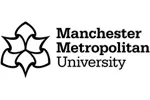

the United Kingdom
Manchester Metropolitan University| The award | How you will study | Study duration | Course start | Domestic course fees | International course fees |
|---|---|---|---|---|---|
| MSc | Full-time, Part-time | 1 - 2 year | September | GBP 8500 per year | GBP 16500 per year |
Based at Manchester Met's Q-Step Centre in the Department of Sociology, this MSc approaches the study of quantitative methods in an innovative way. Right now, there is a demand for graduates with quantitative skills, and it is a demand our students are equipped to meet. Students studying on this MSc will be ready to pursue a career involving quantitative research skills within a diverse range of organisations. Students will also be prepared for doctoral study, which requires advanced skills on quantitative methods recognised by the Economic and Social Research Council (ESRC) and other research councils.
The course focuses on the development and application of key quantitative methods and analytical techniques. It focuses on the use of quantitative methods within real world contexts and a key aim is to develop graduates' career-ready skills in this field.
Manchester Met's Q-Step Centre is recognised as a centre for excellence in the teaching and training of quantitative methods, with a national and global reputation for its pedagogy. It has innovative research partnerships with a range of local organisations, and the community research projects run by the centre look to build on current knowledge to develop new strategies, aimed at empowering and transforming communities. You will be taught by research active academics from Q-Step and other multidisciplinary research centres including Policy Evaluation and Research Unit (PERU), Manchester Centre for Youth Studies, Big Data Centre in Sociology Department and this real-world research feeds directly into what they will be taught. The international research experience of the centre is embedded into the course content and delivery of the course is enhanced by incorporating cross-comparative survey data in lab activities and assessments. You will also have the opportunity to do your dissertation in collaboration with projects being carried out with these centres' international research partners. You will also be exposed to a variety of different perspectives and views within the discipline through lectures, seminars, talks and workshops delivered or co-delivered by international experts.
This course also offers a unique opportunity to develop a specialism in key research fields informed by the specialisms within the various centres within the Department. Depending on your individual programme of study you will either graduate with:
All of these specialisms can be taken with the addition of a placement year.
You will have at least a lower second class UK honours degree (or international equivalent), preferably in a social science or humanities field of study. Candidates who do not meet these requirements are encouraged to apply but may be asked to go through further screening if that seems essential to the admissions tutor.
You do not need to have prior quantitative methods training or skills; this course is designed for both beginners and those with previous experience of Quantitative Methods.
Overseas applicants will require IELTS with an overall score of 6.5 with no less than 5.5 in any category, or an equivalent accepted English qualification.
Below are some suggested courses at other providers that you may also be interested in:
Graduate Diploma of Engineering (Industrial Automation) Graduate Diploma
Engineering Institute of Technology
Find out moreGraduate Diploma in Law/Common Professional Examination GDL/CPE Graduate Diploma
Northumbria University Newcastle
Find out moreGraduate Diploma of Research Methods [Tropical Health and Medicine] Graduate Diploma
James Cook University (JCU)
Find out moreGraduate Diploma in Research Methods (College of Medicine and Public Health) Graduate Diploma
Flinders University
Find out moreGraduate Diploma in Engineering (Mechatronic) Graduate Diploma
The University of Adelaide
Find out moreIf you do not meet the entry requirements for this course then consider one of these postgraduate preparation courses from another institution:
Graduate Diploma of Engineering (Industrial Automation)
Engineering Institute of Technology
Find out moreGraduate Diploma in Law/Common Professional Examination GDL/CPE
Northumbria University Newcastle
Find out moreGraduate Diploma of Research Methods [Tropical Health and Medicine]
James Cook University (JCU)
Find out moreThere are 78 other courses listed from Manchester Metropolitan University. A selection of these are displayed below:
Join the Сưłć´«Ă˝ email list and never miss a chance to turn your study abroad dreams into reality!

See other universities in Manchester
Find out more about studying in the United Kingdom